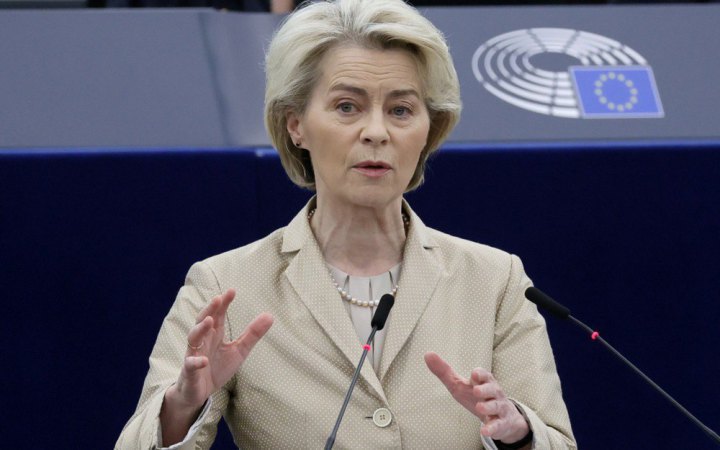As early as July, €1.5 billion in proceeds from Russia's frozen revenues will be available for transfer to Ukraine. European Commission President Ursula von Der Leyen said this at the Berlin conference on Ukraine's recovery.
"10% will be used to rebuild Ukraine. And the majority of the amount will be spent on defence.
‘This week, at the G7 summit, we will discuss how Ukraine can benefit from the frozen Russian assets as soon as possible,’ she said.
Von der Leyen stressed that Russia will be made to pay.
In addition, Ukraine is to receive about €1.9 billion from the European fund Ukraine Facility by the end of the month. This became possible thanks to the reforms implemented by Ukraine.
She praised the European aspirations of Ukrainians and added that negotiations on EU accession should start this month.
The official also said at the conference that the first €1.5bn agreement with banks would be signed in Berlin today to encourage private sector investment in Ukraine.
Confiscation of Russian assets
Ukraine has been asking its allies to transfer frozen Russian funds to it, but so far there has been agreement only to transfer the profits from these funds. This refers to profits accumulated after 15 February 2024, when the EU countries agreed to use these funds for Ukraine's needs, primarily to buy weapons. We are talking about an amount of about €3 billion a year. The €5 billion accumulated before this agreement will not be transferred.
Austria opposed the use of Russian money to arm Kyiv, as German Chancellor Olaf Scholz and European diplomat Josep Borrell have said.
In April, during a meeting of EU foreign ministers in Italy, Vice President of the European Commission Valdis Dombrovskis said that G7 members were considering using frozen Russian assets worth almost $300 billion as collateral for loans to Ukraine.
When the US passed legislation on financing assistance to Ukraine, the document included a provision on the transfer of frozen Russian assets to Kyiv.
In early May, the Financial Times reported that the G7 stopped discussing the confiscation of frozen Russian assets. The G7 fears that full confiscation would violate international law and set a precedent. Instead, they are exploring other ways to use such assets.








